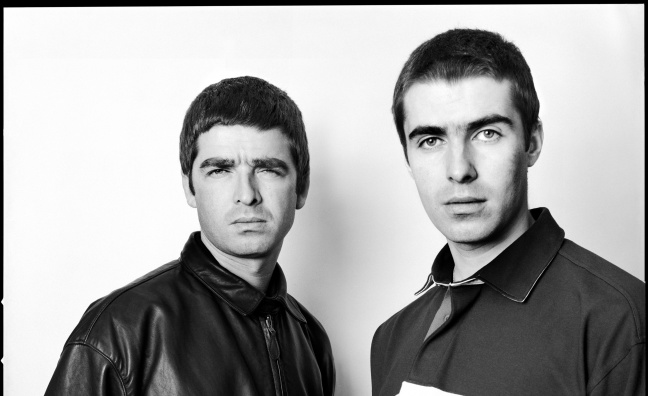Lord knows there’s been plenty of grist for the music industry rumour mill in the past week, but – if the last few days occasionally felt like living in a real life Kill Your Friends – it’s notable how much chatter nowadays is devoted to the ‘90s-style deals that are creeping back into the business.
Because in 2019, the spirit of Steven Stelfox is once more stalking the venues and rehearsal rooms of the UK. Competition for deals is intense, and it’s impossible to attend a gig without someone whispering about how much a label or publisher has paid for the latest hot signing, usually accompanied by much muttering of the phrase “over the odds”.
In many ways, the return of the megadeal is a good thing, a sign not only that the once-beleagured industry now has cash to spend, but also that they’re willing to invest it in top talent. But it's worth remembering that the biggest deals don't have a great track record of paying off, for artists or labels. While, say, Ed Sheeran didn't need a massive deal to become the world's biggest pop star.
The reason it's happening again is because, as in the ‘90s, the potential prize is huge, even if the delivery model is different. But, despite the avalanche of data intended to remove the risk from both signing and releasing music, the chances of actually breaking an artist seem little higher than in the days when Gay Dad and Heavy Stereo were acting like guitar-toting money pits.
It’s no coincidence that, as well as the high-stakes gamble on fresh talent, we’re also seeing majors quietly invest in more established talent. The parallel rash of majors signing mid-rank rock bands (the likes of Pvris, Twin Atlantic and A Day To Remember have all been snapped up in recent months) seems to make little sense until you realise that anyone with a devoted fanbase and a catalogue stuffed full of bangers is actually a nailed-on long-term bet to make money on streaming. Especially as rock fans and older consumers finally seem to be making the leap from physical to streaming.
In his supremely entertaining interview in the new issue of Music Week, out today, Noel Gallagher claims the industry has shifted from one where artists dictate to labels to the other way round. If that seems counter-intuitive in a world where no one actually has to sign a deal to put their music out, the restricted idea of what can work in 2019 – be it a song’s length or musical style – gives it some credence.
It’s worth remembering that when Oasis came out, however, there was actually little consensus that they would go on to become the biggest act of their generation. That they did is down to Gallagher’s genius, of course, but also because the people behind him backed his vision to the hilt.
We can only hope the A&Rs doing the current crop of megadeals are every bit as committed. Otherwise the rumour mill is going to have an awful lot more to talk about…










